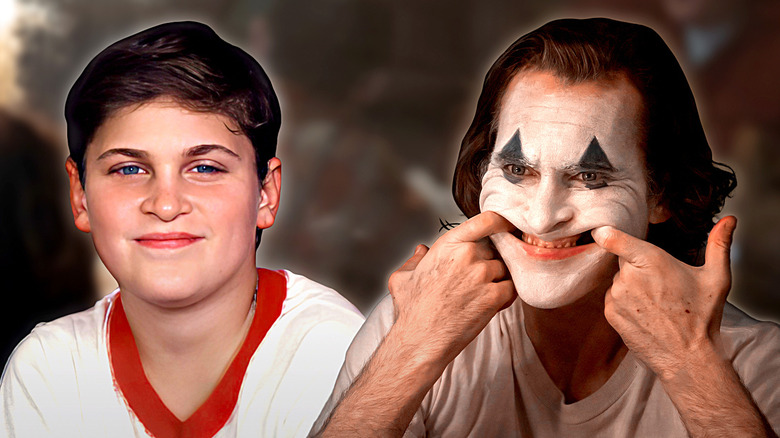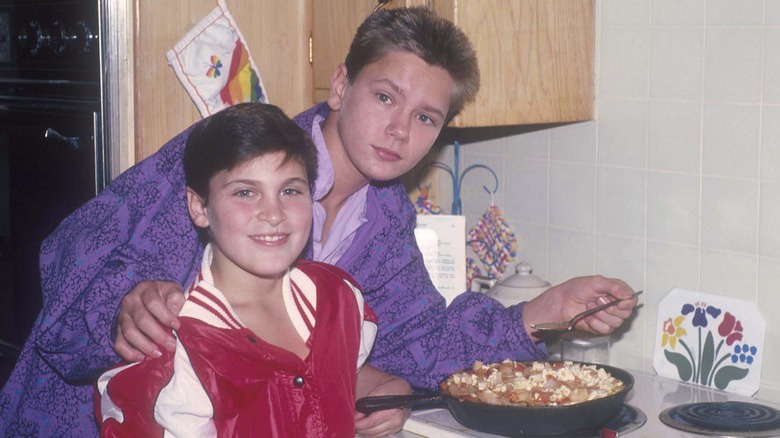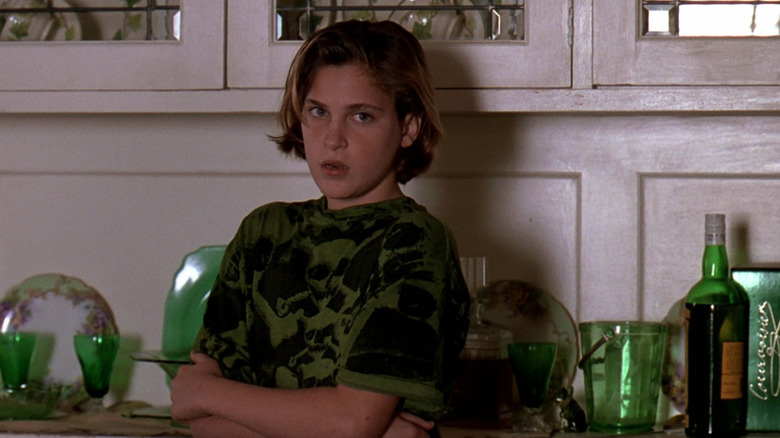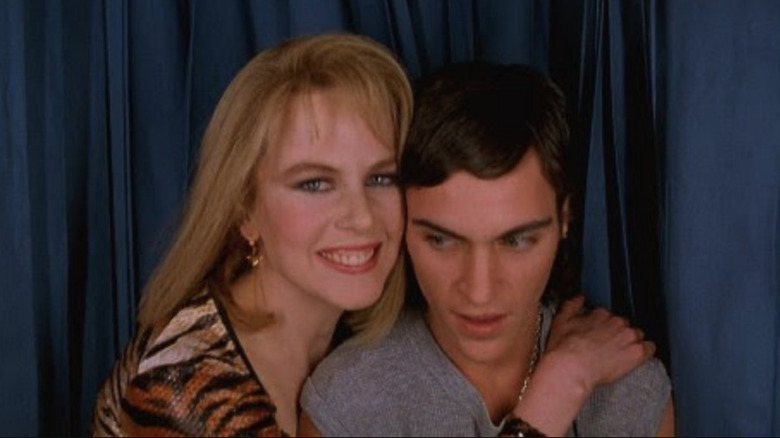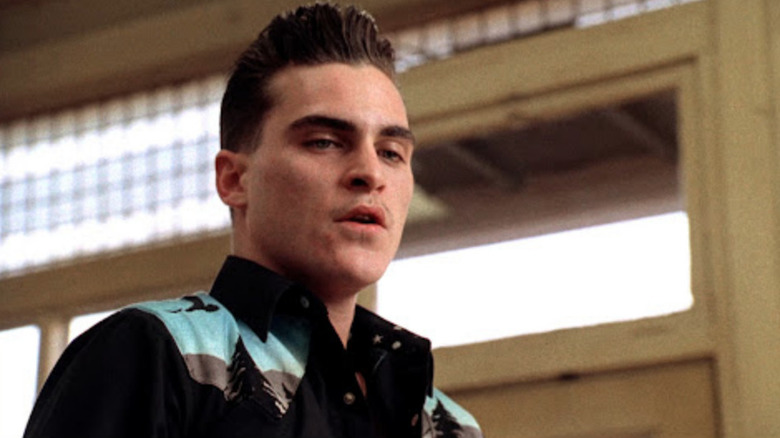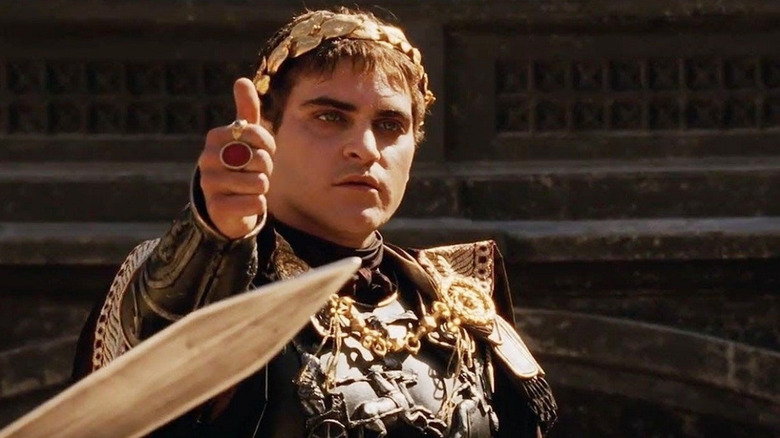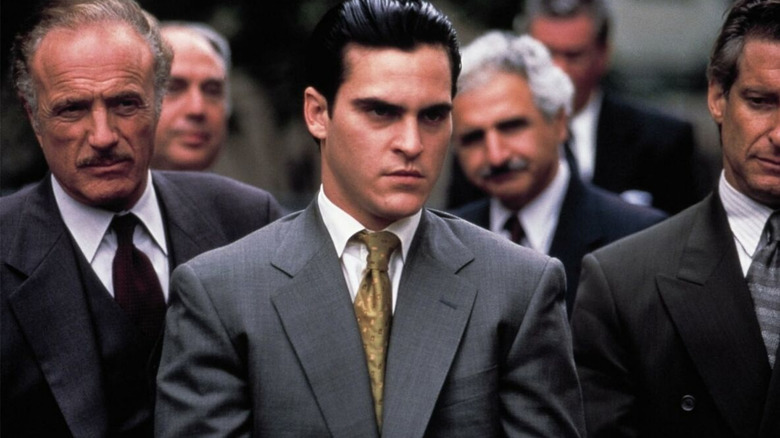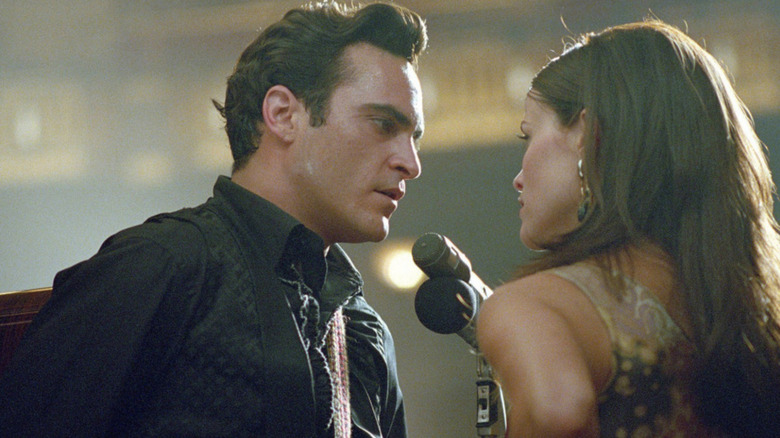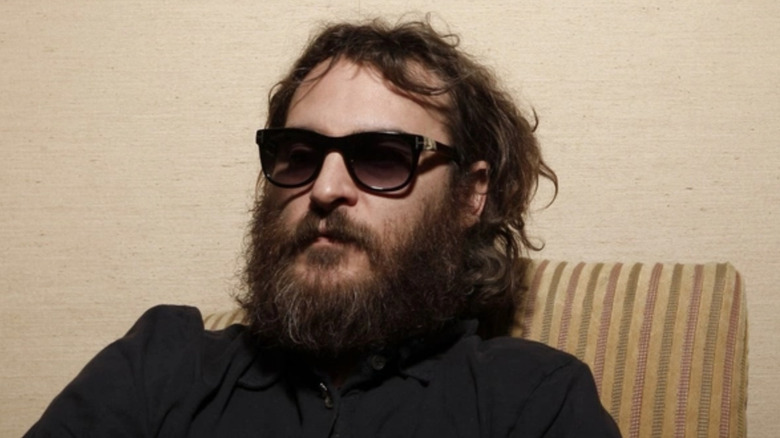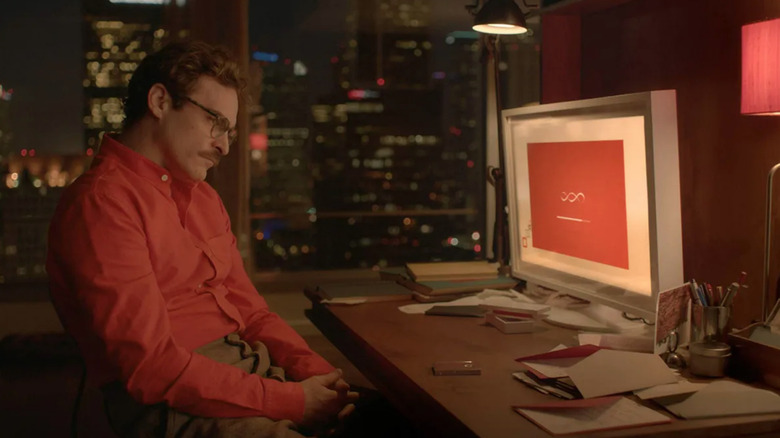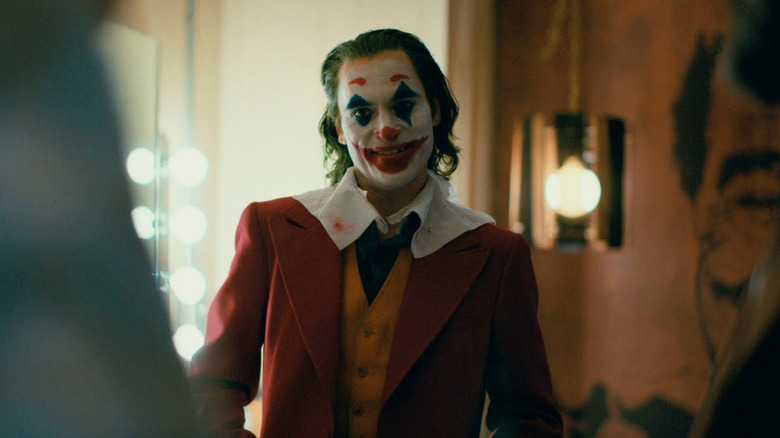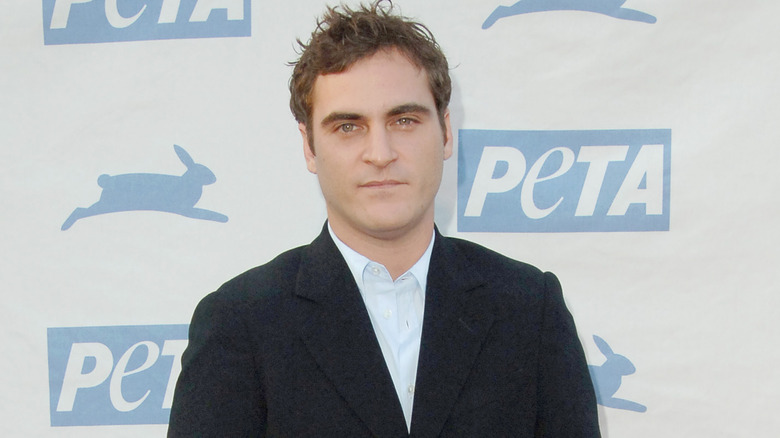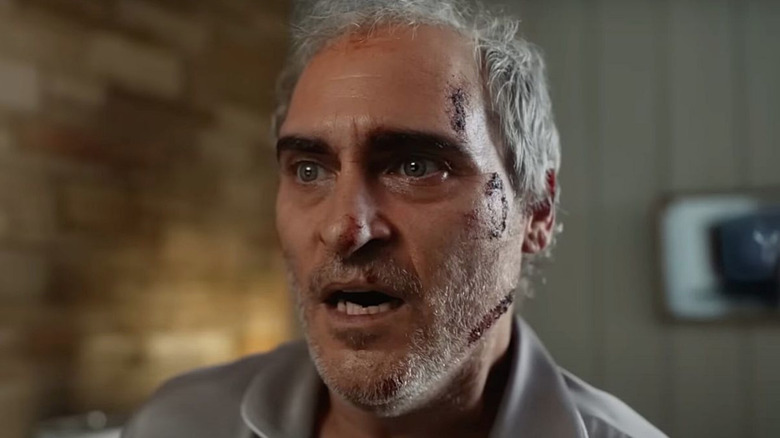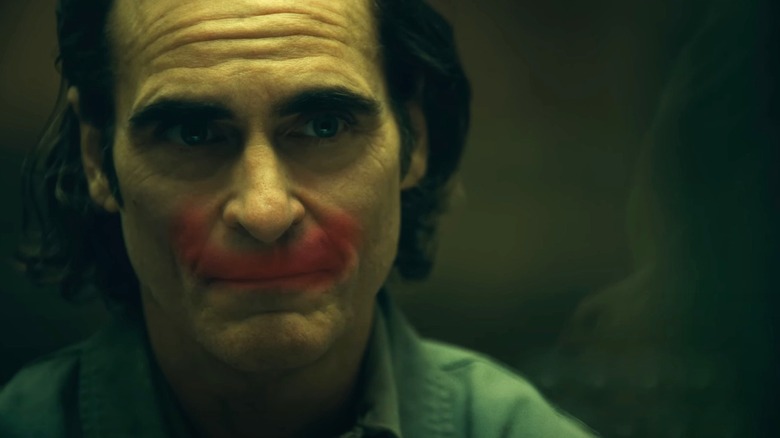Joaquin Phoenix: From Childhood To Joker: Folie A Deux
Joaquin Phoenix, an actor characterized by his eccentric and enigmatic persona, is renowned for embodying dark, offbeat characters that further heighten his mystique. Phoenix's upbringing mirrored his unconventional spirit; he spent his first three years of life as a member of the religious cult Children of God, until his family broke away due to disillusionment with its practices. The Phoenix family led a nomadic life in those early years, residing in Puerto Rico, Venezuela, and Florida before settling in Los Angeles, where Phoenix and his three siblings picked up acting.
Overcoming tragedy after his brother River's death in 1993, Phoenix emerged as a revered and critically acclaimed actor, earning accolades across a diverse spectrum of movie roles. Yet alongside his rise to prominence, he garnered notoriety for his unpredictable media appearances and intense acting methods. Despite this, frequent collaborators such as director James Gray contend that Phoenix is often misunderstood. "He's actually very tender and sweet and sensitive. It's almost as if he channels his intensity into the characters. Like the work is an outlet for his darker side," Gray offered in an interview with Esquire. Regardless of public perception, Phoenix's undeniable talent has led to a captivating life and career of personal evolution and widespread acclaim.
Joaquin Phoenix began acting as a child
After the Phoenix family moved to Los Angeles to pursue careers in the entertainment industry, Joaquin Phoenix — going by the name Leaf at the time — made his acting debut at age eight alongside his brother River Phoenix in an episode of the '80s musical series "Seven Brides for Seven Brothers." "I was eight years old, and I remember the first scene on the TV set so vividly. And I knew that I loved it — the physical sensation; how powerful it was. That's the feeling I've been chasing ever since," he reminisced in an interview with The Guardian.
He followed this with a role in the ABC Afterschool Special "Backwards: The Riddle of Dyslexia" and continued to make guest appearances on shows like "Murder, She Wrote," "The Fall Guy," and "Hill Street Blues" before his feature film debut in the adventure film "SpaceCamp." At the same time, River was hitting the mainstream with his role in the Stephen King film adaptation "Stand by Me."
Just a few years later, Joaquin also broke into the mainstream with a role in the Steve Martin-led comedy "Parenthood." However, he found his enthusiasm for acting waning as he became increasingly uninterested in the limited scope of opportunities available to him at the time. Only after receiving encouragement from River, who accurately predicted Joaquin's future success, did his love for acting reignite.
He took a hiatus from the screen
During his acting hiatus following "Parenthood," Joaquin Phoenix spent time in Mexico with his father. When he returned to the States, his brother River suggested he change his name from Leaf back to Joaquin and encouraged him to get back into acting by introducing him to the Martin Scorsese film "Raging Bull." However, in the early morning of Halloween in 1993, tragedy struck the Phoenix family.
Joaquin and River, accompanied by their sister Rain and River's girlfriend, actor Samantha Mathis, spent an out-of-the-ordinary night at the Los Angeles nightclub The Viper Room, where River was interested in performing. Their night took a turn for the worse when River overdosed on a lethal cocktail of drugs. Joaquin was the one who made the phone call to 911, which circulated across the media in the direct aftermath. In an attempt to escape the overwhelming media attention and grieve in peace, the Phoenix family fled to Costa Rica. Months passed before Joaquin made the decision to return to acting.
His acting comeback led to his big break
Joaquin Phoenix's return to acting after a six-year hiatus was opposite Nicole Kidman in the dark comedy "To Die For," directed by Gus Van Sant, who had previously directed River Phoenix in his 1991 film "My Own Private Idaho." "As soon as I saw him, I started crying," Van Sant told Vanity Fair, reflecting on their reunion. "I didn't realize that would happen but it was pretty sad." "To Die For" wasn't just a comeback; it was a breakthrough for Joaquin, firmly establishing him as a serious adult actor. It was the moment when he began to truly own his craft, signified by his decision to credit himself by his birth name for the first time in a film.
Adapted from Joyce Maynard's novel, which drew inspiration from the notorious Pamela Smart case, "To Die For" satirized the booming reality TV celebrity culture of the '90s. Joaquin portrayed Jimmy, a troubled high school student seduced by Suzanne, a fame-hungry weather reporter, in a plot to murder her husband, Larry (Matt Dillon). Screening at the 1995 Cannes Film Festival, the film was well-received by critics, putting Joaquin on everyone's radar. In 2018, Joaquin reunited with Van Sant for the biographical dramedy "Don't Worry, He Won't Get Far on Foot."
Phoenix endured a string of critical failures
Despite his celebrated comeback with the well-received "To Die For," Joaquin Phoenix's trajectory through the remainder of the '90s was marked by a string of critical and commercial disappointments. Phoenix followed "To Die For" with Oliver Stone's 1997 crime thriller "U Turn," playing the role of Toby N. "TNT" Tucker, a young mechanic whose life takes a dark turn when he crosses paths with a desperate drifter in debt (Sean Penn) and a seductive femme fatale (Jennifer Lopez) plotting a murder in a small Arizona town. The film was a box office failure and was nominated for two Golden Raspberry Awards: one for worst director and another for worst supporting actor.
That same year, Phoenix played Doug, the younger brother of the Holt family, whose romantic entanglement with the Abbott sisters leads to complex family dynamics in the period coming-of-age film "Inventing the Abbotts," which received a lukewarm reception. The trend continued with subsequent projects such as the 1998 dark comedy "Clay Pigeons" and the 1999 Nicolas Cage-led crime thriller "8mm," although the latter managed to gain some traction at the box office despite its unfavorable reviews. Still, Phoenix was undeterred, and his obvious talent was never overshadowed.
Gladiator landed Phoenix his first Oscar nomination
Kicking off the millennium, Joaquin Phoenix embodied the power-hungry villain Commodus with an Oscar-worthy performance in the 2000 historical epic film "Gladiator." Set in ancient Rome, the film tells the story of Maximus Decimus Meridius (Russell Crowe), a general who's betrayed by the new Emperor, Commodus, and seeks revenge by climbing the ranks as a gladiator. The film is celebrated as a modern classic, achieving box office success as the third highest-grossing film of 2000 and securing 12 Academy Award nominations, including Phoenix's first for best supporting actor, which he ultimately lost to Benicio del Toro for the latter's performance in "Traffic." He also earned his first nominations for a Golden Globe Award and a BAFTA Award in the same category.
If "To Die For" was Phoenix's breakthrough, "Gladiator" was his catapult into global stardom. "My wife and I will never forget the day they sent over Joaquin's audition tape," writer David Franzoni recalled to Yahoo News. "Because everyone was like, 'Joaquin Phoenix, isn't he some kind of stoner surf kid?' The audition tape was a knockout. It was mind-boggling." Adding so much depth and nuance to what could have easily been a one-dimensional villain, Phoenix's acclaimed performance became a defining moment in his career.
He's collaborated on multiple films with James Gray
In 2000, Joaquin Phoenix continued his successful streak by taking on the role of another villain in James Gray's crime film "The Yards," commencing a long-term partnership between the two. "The truth is, there aren't a lot of really great actors, ones you love to work with, and they don't grow on trees," Gray said about the actor in a New York Times interview. Seven years later, Gray and Phoenix teamed up once again for the action thriller "We Own the Night," with Phoenix this time playing a nightclub manager entangled in a criminal underworld of drug trafficking and organized crime. This also marked Phoenix's first producing credit.
The next year, Gray and Phoenix reunited for the romantic drama "Two Lovers." While Phoenix's performance was widely lauded, it was also during this time that Phoenix was working on his mockumentary "I'm Still Here," gaining lots of press for his unusual behavior that many believed overshadowed the theatrical release of "Two Lovers.". In 2013, Phoenix played a pimp who exploits the plight of Polish immigrant Ewa (Marion Cotillard) and falls in love with her in his fourth collaboration with Gray, "The Immigrant." It seems clear that Phoenix possesses a collaborative, loyal nature, as well as a tendency to team up with directors — like Gray — who bring out the best in his craft. Other frequent collaborators have included M. Night Shyamalan, Ridley Scott, Gus Van Sant, and Terry George.
He was acclaimed for portraying Johnny Cash in Walk the Line
In 2005, Joaquin Phoenix was nominated for his second Academy Award and BAFTA Award and won his first Golden Globe, this time for best actor, for portraying Johnny Cash in the biopic "Walk the Line." Phoenix not only captured the legendary artist's essence with striking authenticity, but also emulated Cash's distinctive voice, singing all the vocal tracks himself. He took home the Grammy Award for Best Compilation Soundtrack Album and even managed to deceive critic Roger Ebert with his convincing vocals.
"With this part I didn't think I had to sound like Cash, but I certainly had to know how he felt when he was singing," Phoenix admitted to The Guardian. Although Cash didn't live to see the movie, he was pleased with Phoenix's casting, according to director James Mangold. As it turned out, "Gladiator" was one of Cash's favorite films at the time, so much so that he invited Phoenix to dinner before Phoenix was even aware of "Walk the Line."
It was widely theorized at the time that playing Cash led to Phoenix checking into rehab in 2006, given his commitment to Method acting and the parallels between Cash and Phoenix losing their brothers at a young age. However, Phoenix clarified in 2018 that his rehab stint was instead the result of him wanting to switch gears after trying celebrity party culture. But surely the rumor lined up with Phoenix's propensity to blur the lines between fiction and reality.
He faced controversy for his mockumentary I'm Still Here
During the promotion of "Two Lovers," Joaquin Phoenix announced that he was retiring from acting to pursue a career as a hip-hop artist. He grew a disheveled beard, donned dark shades, and made bizarre media appearances — most notably an uncomfortable interview with David Letterman. As it turned out, it was all an act for his mockumentary "I'm Still Here," directed by his close friend and then brother-in-law Casey Affleck. Portraying a heightened caricature of an entitled, out-of-control celebrity, Phoenix set out to explore the complexities of celebrity culture, media dynamics, and the relationship between stars and their audience.
Only Phoenix and Affleck were in on the joke, making it difficult for the general public to decipher what was real and what was an act. The movie was no easier to interpret. "To this day, people still think it may have been real. There's a lot of confusion surrounding it and that, I think, that bonded us even more," Affleck told The Frame.
The film was subjected to controversy due to its experimental and unsettling content, compounded by allegations of sexual harassment behind the scenes. Two civil lawsuits were filed for workplace sexual harassment against Affleck that were both settled out of court. Affleck publicly apologized for contributing to "an unprofessional environment" in a 2018 Associated Press interview. Since then, Phoenix and Affleck have grown apart. "My sister and him divorced. And I haven't spoken directly to him or indirectly in a long time. Three or four years," Phoenix revealed to Vanity Fair in 2019.
His performance in Her was snubbed by the Oscars
In his solo screenwriting debut, writer-director Spike Jonze cast his first choice, Joaquin Phoenix, as the lead in his 2013 sci-fi romantic drama "Her." Portraying a lonely divorcee who finds solace and love with an artificial intelligence operating system named Samantha (voiced by Scarlett Johansson), Phoenix's performance delves into themes of love, loneliness, and the nature of human connections against a subtle sci-fi backdrop.
Critically acclaimed and a box office success, it was no surprise that "Her" was nominated for five Academy Awards, including best picture. However, what was surprising for many was the absence of a best actor nomination for Phoenix. Journalists in publications like GQ, The Hollywood Reporter, and IndieWire considered it one of the year's most significant Oscar snubs. Despite this, Phoenix's performance was at least recognized with a Golden Globe nomination, ultimately losing to Leonardo DiCaprio for his performance in "The Wolf of Wall Street."
Phoenix was hesitant to play the Joker
For Joaquin Phoenix and writer-director Todd Phillips, "Joker" wasn't about making another comic book movie; it was about creating an authentic character study of Arthur Fleck, an impoverished party clown and aspiring stand-up comedian who goes on to become one of Gotham's most notorious villains. Phillips was adamant that no one else but Phoenix could embody the role the way he envisioned. "The goal was never to introduce Joaquin Phoenix into the comic book movie universe. The goal was to introduce comic book movies into the Joaquin Phoenix universe," he told TotalFilm.
In hindsight, it's impossible to imagine anyone but him in the role, but initially, Phoenix was hesitant. "Usually when I'm scared of something, it makes me feel like I have to go towards it. I had so many mixed feelings about the character. And I like that," he shared with IndieWire.
With fear motivating him and some convincing from Phillips, Phoenix threw himself into the role and transformed into the Joker. Part of the physicality was mastering the laugh by studying those afflicted with pathological laughter and getting his look right by rapidly losing 52 pounds. He made one of the most recognizable comic book characters his own and won his first Academy Award for best actor as a result. Additionally, "Joker" became the most profitable comic book film and the highest-grossing R-rated film of all time, surpassing $1 billion at the box office.
He's involved with animal rights documentaries
An outspoken animal rights activist and a practicing vegan since age three, Joaquin Phoenix has dedicated a portion of his career and fame to raising awareness for the cause. In addition to headlining numerous animal rights campaigns, Phoenix has helped platform and address these issues on the big screen through multiple animal rights documentaries. In 2005, he narrated "Earthlings," a documentary exposing animal exploitation at the hands of humans, and was awarded the Humanitarian Award at the San Diego Film Festival for his contribution. A decade later, he narrated the film's sequel, "Unity," along with 100 other celebrities. Together, they emphasized themes of compassion, the human experience, and the importance of unity among all living beings.
In 2020, Phoenix served as an executive producer for "Gunda," a documentary that intimately captures the daily lives of a pig, two cows, and a one-legged chicken. He followed this with another executive producing credit, this time alongside his wife, Rooney Mara, for the 2022 documentary "The End of Medicine," shedding light on the interconnectedness between our treatment of animals and pressing global health concerns.
Phoenix continues to take on roles in independent films
Joaquin Phoenix has always gravitated toward characters with deep psychological depth and emotional complexity, showing his vast range with every new role he takes on. Today, he may be best known as the Joker, but that doesn't stop Phoenix from showing interest in smaller, independent projects. "I don't really care about genre or budget size, anything like that," he told The New York Times. "It's just whether there is a filmmaker that has a unique vision, has a voice, and the ability to make the film." This open-minded approach has led Phoenix to experiment with an eclectic mix of genres.
In 2017, he played a troubled hired gun in the 2017 crime thriller "You Were Never Really Here" and won the award for best actor at the Cannes Film Festival. More recently, he's led back-to-back projects from A24, perhaps the biggest name in independent film. His performance in the 2021 black and white drama "C'mon C'mon" was met with overwhelming praise, revealing yet another facet of his acting range as a family-first, introspective radio journalist. His second A24 film, Ari Aster's surrealist tragicomedy horror film "Beau Is Afraid," may have been a financial failure, but his performance as the neurotic Beau was nothing short of exceptional.
Returning for Joker: Folie à Deux wasn't on his radar
Despite Todd Phillips never intending "Joker" to have a sequel and Joaquin Phoenix turning down multi-picture deals in the past, the duo's change of heart may have had something to do with the film's overwhelming success. However, Phillips and Phoenix have never been motivated by a big payout. "You know, I wouldn't have thought about this as my dream role. But now, honestly, I can't stop thinking about it," Phoenix said in a "Popcorn With Peter Travers" interview (via IndieWire).
Buzz surrounding the sequel only grew over time. When the "Joker: Folie à Deux" trailer dropped in April 2024, it became Warner Bros.' highest-viewed trailer premiere. Based on the snippets provided, this unconventional musical and psychological thriller promises to deliver the same gritty intensity as its predecessor, as we're introduced to the turbulent romance between the criminal clown and his new muse, fellow asylum inmate Harley Quinn (Lady Gaga). Although Phoenix's decision to revive his role as the ever-popular Joker may have seemed out of character for the actor, one thing remains certain: whatever may lay ahead in his career, we can at least be sure that he will continue to push boundaries and surprise us at every turn.
